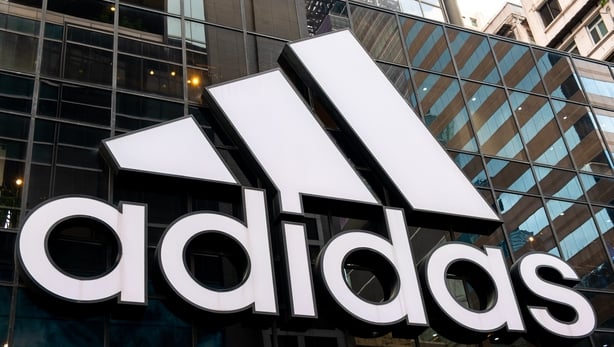Adidas will cut its 2022 dividend, the sporstwear maker said today, warning a split with rapper and fashion designer Ye could push it to its first annual loss in three decades this year.
Chief executive Bjorn Gulden pledged to rebuild the bruised brand after dealing with the fallout from ending Adidas' partnership with Ye, which yielded the lucrative Yeezy sneaker line.
Adidas has not said how much the Yeezy brand has made since its first deal with Ye, formerly known as Kanye West, at the end of 2013.
But analysts estimate it accounted for as much as 7% of total sales in its best years.
The company needs to refocus on its core business and faces a "transition" year before returning to profit in 2024, and will return to its sports-based roots, Gulden said.
"You will see us investing in more sports, because that is the DNA of this company," he told reporters.
The company will recommend a dividend of €0.70 a share, down from €3.30 a share in 2021, at a May 11 annual general meeting, it said.
Adidas shares were lower today, but they have, however, outperformed rivals Puma and Nike since the start of this year, in a sign that investors back Gulden.
The company cut ties with Ye in October following a series of antisemitic comments he made on social media and in interviews which also prompted Twitter and Instagram to restrict his accounts on their platforms.
Gulden said Adidas is still deciding what to do with its stock of unsold Yeezy footwear.
Burning the shoes poses a sustainability issue, he said, while giving them away to charity is complicated due to their resale value, which has surged since the split.
A pair of Yeezy 350 "Zebra" shoes is now selling for between $340 and $360, compared to around $260 four months ago, according to John Mocadlo, CEO of US sneaker reseller Impossible Kicks.
One option could be for Adidas to donate proceeds from the sale of repurposed Yeezy stock to charity, Gulden said.
The split cost Adidas €600m in sales in the fourth quarter of 2022, and Yeezy shoes would have brought in an estimated $1.2 billion in revenue this year.
Gulden said ending Yeezy - a decision that predated his taking the helm - was the right thing to do but added that it was "very sad" and that it would take time for Adidas to build a new brand that is as influential.
Overall, Gulden said Adidas needs to reduce inventory levels and do less discounting.

Inventories came in at just under €6 billion at the end of December, up 49% from the previous year, including €400m of Yeezy products.
The company forecast 2023 underlying operating profit at roughly break-even when taking into account the $500m loss from not selling existing Yeezy stock.
If Adidas decides not to repurpose the products, it will write the inventory off altogether, denting profit by another $500m. That, along with $200m of one-off costs, would bring Adidas to a $700m loss this ear.
RBC analysts said they see the full write-down as the most likely scenario.
In the fourth quarter of last year, currency-neutral revenue declined by 1%, taking into account the €600m loss after it stopped selling Yeezy shoes.
Greater China revenue also weighed, down 50% compared to the fourth quarter of 2021.
Adidas said it struggled with stock takebacks and a difficult market environment in China, driving revenue down 36% for the year compared to 2021.
The end of Covid-19 lockdowns in China is expected to drive sales up across the major retail brands for whom China is a key market, but for Adidas that boost will likely be wiped out by the impact of the Yeezy split, making it hard for it to compete against rivals Nike and Puma.
Analysts at Wedbush who track new runner product launches said Nike is likely to take market share from Adidas in the absence of new Yeezy designs.
Meanwhile, the early departure of CEO Kasper Rorsted will cost Adidas nearly €16m, according to the company's annual report today.
The Danish national, who left the German sportswear maker in November almost four years before the end of his contract, will receive a severance payment of €12m.
In addition, he will receive around €3.6m as compensation for not joining a competitor within the next 18 months, as well as his remaining salary of around €300,000 for November and December.
Rorsted's contract was extended by five years in 2021, but he stepped down earlier than planned last year amid mounting problems at the company including an over-reliance on business in China.
In November, the company said that Bjorn Gulden, who led Puma since 2013, would replace Rorsted from January 1.
Rorsted and his fellow board members saw salary reductions in 2022 in view of the slump in profits.
They received neither a performance-related bonus for 2022 nor share-based long-term bonuses. The latter totaled €14.2m a year earlier.

